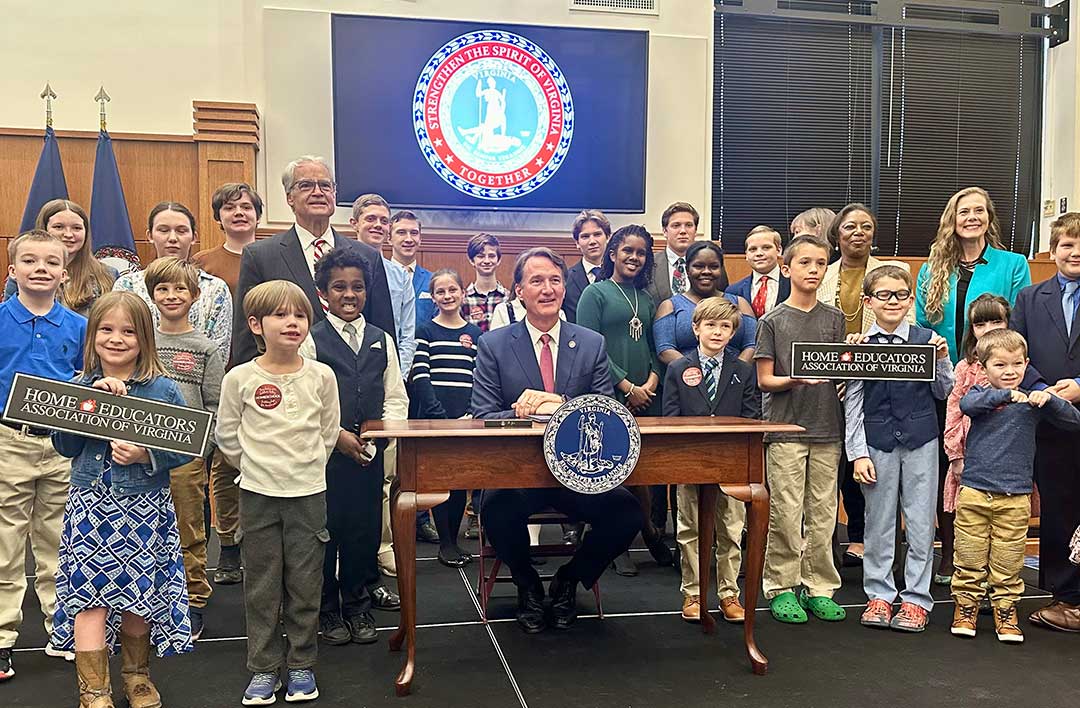Co-op Teachers: Employees or Contractors?
Recent Change to Federal Law Could Impact Your Homeschool Group
By Darren Jones, Esq. Home School Legal Defense Association (HSLDA)Are your homeschool co-op teachers contractors or employees?
In March 2024, a portion of the federal rules governing the Fair Labor Standards Act (FLSA) changed. The purpose of this new rule is to help businesses and organizations analyze who is an employee versus who is an independent contractor. The Department of Labor has a website for “small entities”, including the all-important question of “to whom does the FLSA apply?” (Kudos to the editors at the federal government for proper grammar!)
It is beyond the scope of this short article to answer the question of whether the FLSA applies to your homeschool co-op; if you have questions about that, you should contact a local attorney or research the Department’s website. However, if it does apply to your homeschool group, then here are some tips to guide you through the issue of employees versus independent contractors. (You could also check out this chapter from the Field Operations Handbook (FOH) that mentions “employment relationship required for FLSA to apply.”)
Previous guidance from the Department of Labor states, “There is no single rule for determining whether an individual is an independent contractor or an employee for purposes of the FLSA.” The Department’s new rule has six factors to help you determine whether the homeschool dad teaching geography at your co-op is an employee or independent contractor. As we look at these factors, I’ve adapted some of the questions on the Department’s website to apply to homeschoolers, and I’ve put in parentheses which type of worker that question tends to indicate.
- Opportunity for Profit or Loss Depending on Managerial Skill: Is the worker determining or meaningfully negotiating his pay (contractor)? Is the math teacher putting up ads for her other math classes on her own Facebook page (contractor)?
- Investments by the Worker and the Potential Employer: Who is buying the books and materials for the class? If it is a science lab, does the teacher buy the microscope, slides, and lab PowerPoints (contractor)? Does the co-op provide all the costumes for the play (employee)? Or is that the job of the paid producer (contractor)?
- Degree of Permanence of the Work Relationship: Has the history teacher taught this same class every year at your co-op but nowhere else (employee)? Does your physics instructor take time off from her job teaching at the local community college to share her knowledge with your students (contractor)?
Factors 4 and 5 make most homeschool co-op teachers employees rather than contractors, in my experience:
- Nature and Degree of Control: Does your co-op set the schedule for your teachers (employee)? Is someone in your co-op responsible for evaluating how the instructor performed during class (employee)? Do you have the right to discipline the teacher if they are not teaching in the way your co-op wants (employee)? Does your co-op set the cost for the class (employee)?
- Extent to Which the Work Performed as an Integral Part of the Potential Employer’s Business: If your paid instructors didn’t show up to your co-op, would your co-op keep on going? If so, the instructors may be independent contractors. In the co-ops I have been involved in, both as a student and as a parent, there were almost no paid instructors—so the co-op could function just fine without them. However, many of the co-ops that I talk to daily through my work at HSLDA exist only for the purpose of providing space for the instructors. In fact, in these instances, “the work performed by the instructor is critical, necessary, and central to the co-op’s business”, and thus the co-op teachers might be employees.
- Skill and Initiative: Hopefully, all your instructors bring specialized skills to their work at your co-op. However, just because a math tutor can run rings around us lawyers when it comes to differential equations does not automatically make the math tutor a contractor. The Department of Labor says that “it is the worker’s use of those specialized skills in connection with a business-like initiative that indicates that the worker is an independent contractor.” Does your art tutor run her own studio (contractor)? Is the astronomy teacher passing out business cards to the parents to sign up for his in-person night classes (contractor)?

Co-op Teachers Clarification
Why does all this matter? Because if an individual is an employee, they are entitled to minimum wage and overtime pay. Additionally, employers may need to withhold taxes for their employees, a task that is not required on behalf of their independent contractors. The Department of Labor helpfully points out that if an employer misclassifies a person, “the employer will be responsible for paying any unpaid wages owed to the employee under the FLSA. Additionally, the employer may have to pay liquidated damages in an amount equal to back wages, as well as civil money penalties. Employers may also have to pay attorneys’ fees associated with litigation.”
NOTE: HSLDA fiercely defends the right of parents to teach their children at home. As part of our advocacy and defense work, we provide general services and counsel to homeschool groups of all kinds. However, if you have questions as to whether the FLSA applies to your co-op, or whether your instructors are employees or independent contractors, we recommend you consult an accountant or tax attorney. HSLDA is unable to give legal advice in these situations; nothing in this article should be construed as legal advice.
Darren Jones, Esq.
HSLDA Senior Counsel and Director of Group Services
Darren and his wife Sara homeschool as a team and have graduated the oldest two of their four children. He enjoys board games, teaching Sunday school, and speaking at homeschool conferences around the country.
Enjoy this article?
For more insightful and encouraging legislative and homeschool related articles, homeschool living tips, and homeschool connections, please visit our HEAV blog. Click here!









